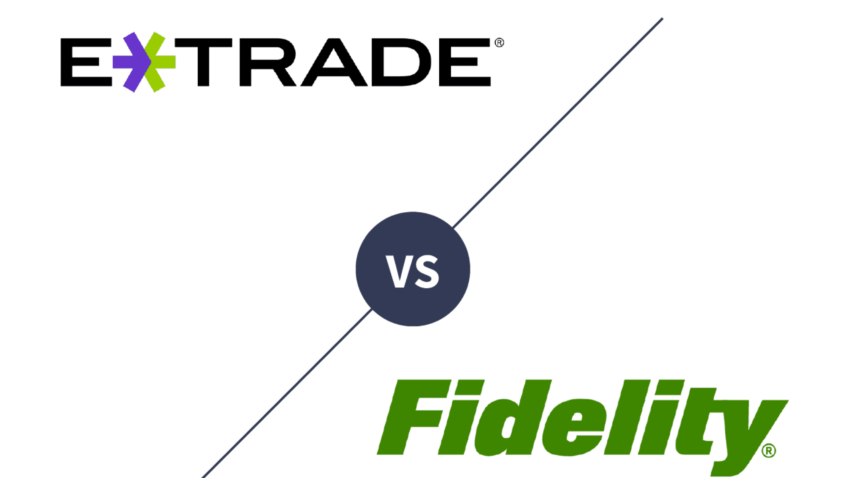Online brokers have become increasingly popular among investors looking for a convenient and low-cost way to manage their investments. Etrade and Fidelity are two of the most well-known and respected online brokers, but which one is the best for you? In this article, we’ll compare Etrade vs Fidelity in terms of their fees, investment options, trading platforms, research tools, and customer support, to help you make an informed decision.
Overview of Etrade vs Fidelity
Etrade is an online broker founded in 1982 and headquartered in New York. It offers a wide range of investment options, including stocks, bonds, mutual funds, and ETFs. As well as advanced trading tools and research resources. Etrade charges $0 for stock and ETF trades and has no account minimums.
Fidelity, on the other hand, is a full-service broker founded in 1946 and based in Boston. It offers a similar range of investment options as Etrade but with additional services like financial planning, wealth management, and retirement accounts. Fidelity also charges $0 for stock and ETF trades and has no account minimums.
Fees
When it comes to fees, Etrade and Fidelity are very competitive. Both brokers charge $0 for stock and ETF trades, although Etrade charges a $0.65 fee per options contract while Fidelity charges $0.65 per contract for accounts with less than 1,000 trades per month and $0.50 per contract for accounts with 1,000 or more trades per month. Both brokers also offer commission-free mutual funds and no-transaction-fee (NTF) funds, although Fidelity has a larger selection of NTF funds.
Etrade charges a $500 fee for mutual fund trades outside of its NTF program, while Fidelity charges a $49.95 fee for the same service. Etrade also charges a $25 fee for broker-assisted trades, while Fidelity charges $32.95.
Investment Options
In terms of investment options, Etrade and Fidelity both offer a wide range of choices, including stocks, bonds, mutual funds, ETFs, options, futures, and forex. However, Fidelity has a larger selection of mutual funds, with over 10,000 funds available, compared to Etrade’s 4,400 funds.
Fidelity also offers access to initial public offerings (IPOs) and fractional shares, while Etrade does not. On the other hand, Etrade has a more advanced trading platform, with features like Etrade Pro, designed for active traders and offers advanced charting and analysis tools.
Trading Platforms
Both Etrade and Fidelity offer user-friendly trading platforms, but they have different strengths. Etrade’s platform is more advanced, with features like Etrade Pro and advanced charting tools. It also offers a mobile app that allows you to trade on the go.
Fidelity’s platform is more comprehensive, with tools for research, analysis, and portfolio management. It also offers a mobile app that allows you to manage your investments and trade on the go.
Research Tools
When it comes to research tools, both Etrade and Fidelity offer a wealth of resources to help investors make informed decisions. Etrade offers research from independent firms like Morningstar and S&P Capital IQ, as well as its own research and analysis tools.
Fidelity also offers research from third-party providers like Morningstar, as well as its own research and analysis tools, including its proprietary Equity Summary Score.
Customer Support
Both Etrade and Fidelity offer excellent customer support, with multiple channels of communication, including phone, email, and live chat. Etrade also offers in-person support at its branch locations. While Fidelity has over 190 investor centers across the United States where you can meet with a financial advisor.
Which Broker is Right for You?
Choosing between Etrade and Fidelity depends on your individual needs and preferences. If you’re an active trader who values advanced trading tools and a mobile trading app. Etrade may be the better choice for you. On the other hand, if you’re looking for a more comprehensive platform with a larger selection of mutual funds and additional services like financial planning and retirement accounts, Fidelity may be a better fit.
Conclusion
Etrade vs Fidelity is both excellent online brokers that offer a wide range of investment options, competitive fees, and excellent customer support. When choosing between the two, it’s important to consider your individual needs and preferences. As well as the specific features and services that each broker offers.





